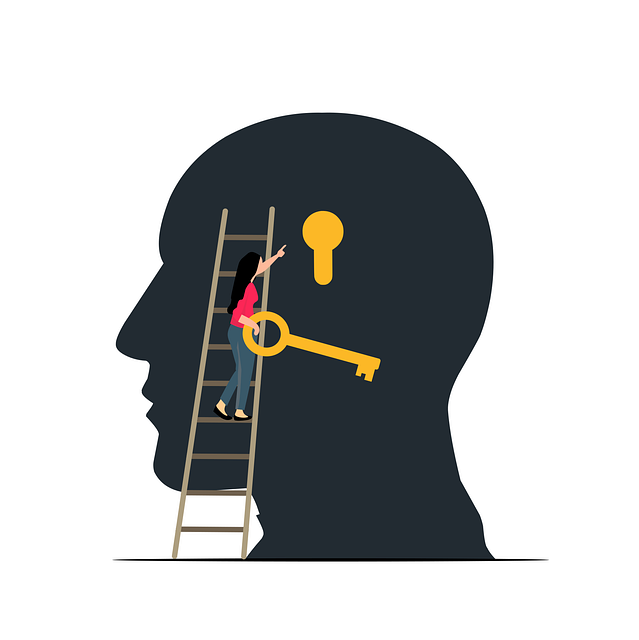Mental Health First Aid (MHFA) training is a crucial tool in addressing opioid addiction by equipping individuals with crisis intervention skills, recognizing early signs of withdrawal, and encouraging access to evidence-based medications. This proactive approach helps mitigate psychological risks, fosters healthy relationships, and promotes swift interventions, ultimately enabling communities to overcome opioid addiction effectively through integrated strategies including naloxone administration and supportive networks.
Mental health first aid training is transforming the way we address crises related to opioid addiction. By equipping individuals with the knowledge and skills to recognize early signs of mental distress, this training enables proactive intervention. In an era where opioid-related emergencies are on the rise, understanding mental health crises and their intersection with addiction is vital. This article explores effective strategies, highlighting how trained individuals can respond swiftly and compassionately, ultimately empowering clients in overcoming opioid addiction.
- Understanding Mental Health Crises and Their Impact on Opioid Addiction
- The Role of Mental Health First Aid Training in Early Intervention
- Empowering Clients: Strategies for Responding to and Overcoming Opioid Addiction Crisis
Understanding Mental Health Crises and Their Impact on Opioid Addiction

Mental health crises and opioid addiction often coexist, creating a complex web that requires specialized understanding. Opioid addiction is characterized by an intense craving and compulsive use despite harmful consequences, potentially leading to severe physical and psychological symptoms during withdrawal. When left untreated, it can exacerbate existing mental health issues or trigger new ones, such as anxiety, depression, or psychosis.
Crisis intervention training equips individuals with the skills to recognize these emergency situations, especially when co-occurring disorders are involved. By understanding the unique challenges of opioid addiction and its impact on mental health, first aid responders can provide immediate support and direct those in need towards effective treatment options, including specialized Addiction Treatment Centers focusing on specific substances. This proactive approach is crucial in helping individuals overcome opioid addiction and mitigate the risk of severe psychological repercussions.
The Role of Mental Health First Aid Training in Early Intervention

Mental Health First Aid (MHFA) training plays a pivotal role in early intervention for individuals struggling with mental health issues, including those at risk of opioid addiction. This evidence-based approach equips laypeople to recognize warning signs and provide initial support until professional help arrives. By learning how to overcome opioid addiction and other crisis situations through MHFA, communities can foster an environment that promotes early detection and swift intervention.
The training focuses on developing skills in crisis intervention, de-escalation techniques, and understanding the range of mental health conditions. This knowledge is particularly crucial for those in close contact with individuals at risk, such as family members, friends, and community support networks. With effective MHFA, people can learn to identify signs of withdrawal management, encourage access to evidence-based medications for opioid addiction, and foster healthy relationships coaching during early sobriety, ultimately preventing escalation into emergency situations.
Empowering Clients: Strategies for Responding to and Overcoming Opioid Addiction Crisis

Mental health first aid training equips individuals with invaluable skills to address opioid addiction crises effectively. When faced with a loved one or client experiencing an overdose, immediate action can be life-saving. Trained individuals learn to recognize the signs of an opioid emergency and administer naloxone, a medication that reverses the effects of an opioid overdose. This swift response can significantly increase survival rates and prevent tragic losses.
Moreover, empowering clients with knowledge about evidence-based medications for withdrawal management is pivotal in their addiction recovery journey. Support groups, both online and offline, play a crucial role by offering a sense of community and shared experiences, fostering connections that encourage ongoing participation in recovery. By combining these strategies—early intervention, naloxone access, medication-assisted treatment, and supportive communities—individuals can navigate opioid crises more effectively, paving the way towards lasting addiction recovery.
Mental health first aid training plays a pivotal role in equipping individuals to handle opioid addiction crises effectively. By understanding mental health emergencies and learning practical strategies, we can significantly enhance our response to these challenging situations. Empowering clients with the knowledge to recognize and manage their mental health has the potential to revolutionize how we overcome opioid addiction, offering hope and support for those in need.






